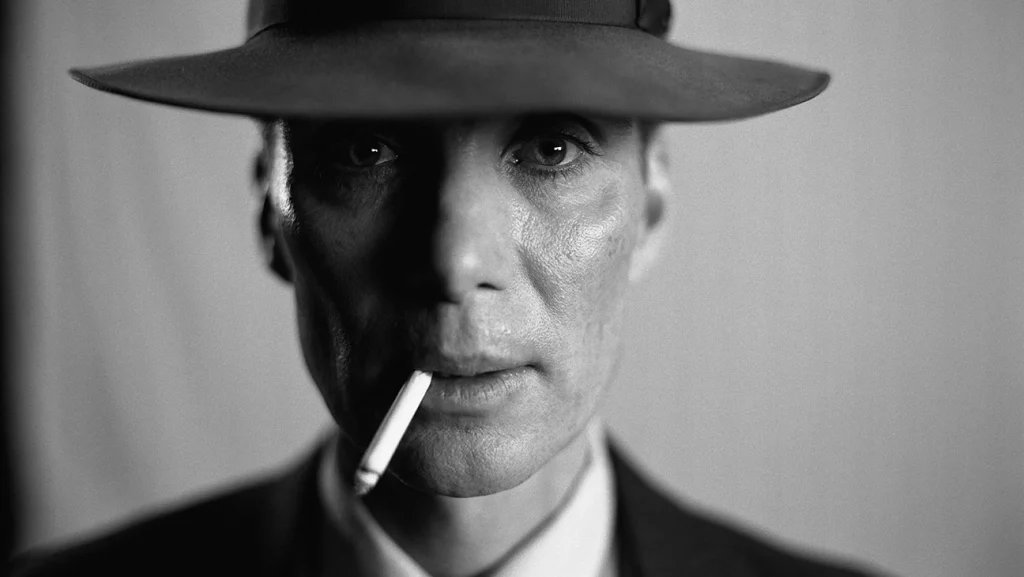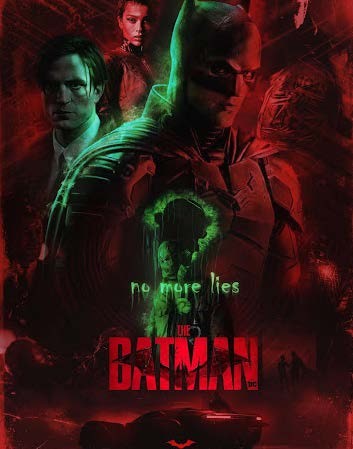Movie Review: Oppenheimer
Christopher Nolan’s brand as our foremost maker of high-line, prestige blockbusters precedes him, and “Oppenheimer” is his plunge inside the mind and world of J. Robert Oppenheimer, the physicist who headed up the team that created the atomic bomb. You come expecting a certain level of technical mastery, and Nolan delivers. Oppenheimer is a slick, sturdy, overwhelmingly grand film with a storytelling approach that ebbs and flows like the swells in composer Ludwig Göransson’s undulating score.
Cillian Murphy turns in a searing performance as Oppenheimer, known as Oppy, to his close friends and colleagues. He’s a genius of the troubled variety, at one point injecting his college professor’s green apple with potassium cyanide after an in-class slight. He’s soon on to much bigger things than poisoned apples and hand-picked to head up the team that will race against Germany to build the world’s first atomic bomb. It’s World War II, and someone’s going to get there first, and Russia might be throwing its hat in the ring as well.
With the annihilation of the world on the line, there’s so much emphasis on the completion of the project that the ethics behind the bomb are back-burnered so far as not to even weigh into the scientific equation. Well, it’s no secret that the big bombs are dropped, and Nolan follows Oppy before, during and after the mushroom clouds, tracking the political and personal fallout of his work as the father of the atomic bomb, as he came to be known.

It also follows his pushback on the hydrogen bomb and the political hot water it landed him in, and the communist fears that ruled the political agendas of 1950s America, as well as attempts to railroad Oppenheimer and his reputation. Oppenheimer stars so many recognizable faces that keeping track of them all is dizzying. There’s Matt Damon as a hard-headed (but humorous) lieutenant general, Robert Downey Jr. as a political lifer seeking a cabinet appointment and Kenneth Branagh as Nobel Prize-winning physicist Niels Bohr.
Florence Pugh and Emily Blunt are on board as Oppenheimer’s love interests. Three recent Best Actor Oscar winners, Casey Affleck, Gary Oldman and Rami Malek, show up for a combined, oh, seven minutes of screen time. Hey, is that Josh Peck? Oh wow, Benny Safdie’s in this too? Dane DeHaan is here for 3 minutes!! And that’s not mentioning roughly a dozen others.
The screenplay by Nolan is disorienting by design, as it unfolds in at least three parallel timelines at different times in Oppenheimer’s life, shifting from black and white to colour all the while. (Editor Jennifer Lame practically conducts a symphony. We see Oppy working with a team of physicists in a large room with formulas scrawled out on chalkboards during the Manhattan Project sessions and answering heated questions from a group of sweaty inquisitors in an enclosed office space.
There are also scenes of Downey Jr.’s character’s confirmation hearings, and none of these truly come into context until well into the movie, after an A-bomb test that acts as the explosive centrepiece of the film. (The attacks themselves, alas, are left off-screen.) Some of these threads feel like they’re taken from separate movies altogether, particularly Pugh’s storyline, and her troubled character is reduced to a manic sex bomb in the overstuffed script.
One high-profile character emerges as a villain in the late stages of the story, as Nolan searches for a sense of comeuppance, and a particular name drop at a key moment feels like a cheap bit of audience bait in a story searching for grounded emotional notes. But where Oppenheimer excels is in Murphy’s performance and the heavy, heavy themes of military, man (and men, for that matter) and the, er, moral implications of nuclear destruction.
The most effective scene has Oppenheimer speaking at a rally after the bomb was dropped on Japan, as he looks out at a crowd wildly cheering the deaths of hundreds of thousands in the name of nationalism and patriotism. Up until that point, he’s been a loyal soldier, preaching science first, with his blinders on toward the vast global implications of his work. But a bomb can change a man, and the scene unfolds as a grim commentary on politics, propaganda and human nature, and it cuts to the core of the man better than any scene in the film.
Nolan’s mistrust of the government and its silencing, all-reaching power is evident. He could have arrived there with a more succinct presentation, but then big subject matter calls for a big canvas, and Nolan isn’t interested in scaling down or tidying up. Heck, no one expects a bomb to go off cleanly, and there’s plenty to sift through in Oppenheimer’s shrapnel. People will likely be going through it for years.
In truth, as Oppenheimer commandingly reminds us, the blood is on all our hands. Global nuclear war, most recently threatened by Russian leader Vladimir Putin in his assault on Ukraine, stopped being unthinkable the moment the first A-bomb exploded, cheered on by the man and his enablers who stole fire from the gods.
Boluwatife Adesina is a media writer and the helmer of the Downtown Review page. He’s probably in a cinema near you.






